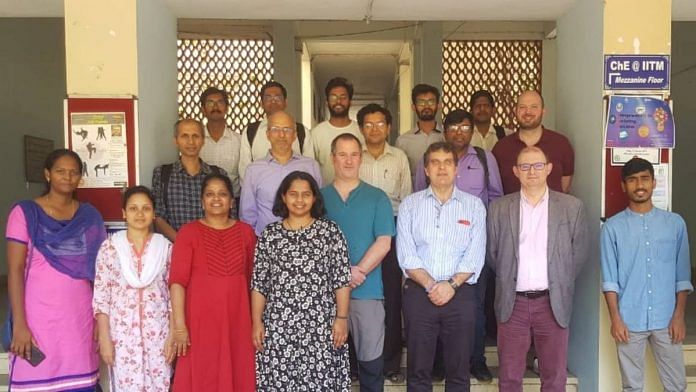New Delhi: The Indian Institute of Technology (IIT), Madras, along with researchers based in the United Kingdom, have developed a paper-based sensor which can detect antimicrobial pollutants, particularly those which cause antimicrobial resistance in water bodies.
The sensor, which is ‘low cost’ and ‘field deployable’, is expected to be a viable tool for environmental surveillance and detecting pollutants in water bodies. Coming at a time when the scientific community has raised concern over antimicrobial resistance becoming a worldwide health crisis, the sensor, researchers have suggested, can be used for environmental monitoring, food safety analysis and healthcare monitoring.
According to the World Health Organization, antimicrobial resistance “threatens the effective prevention and treatment of an ever-increasing range of infections caused by bacteria, parasites, viruses and fungi”. It occurs when microbes like bacteria, viruses and fungi no longer respond to medicines, making these infections harder to treat.
Water bodies, especially, have emerged to be a source of “dissemination and transfer” of antimicrobial resistance. The research also suggested that “periodic monitoring” of these pollutants will be key in assessing the status of antimicrobial resistance in India.
Also read: Polish researchers discover a pregnant Egyptian mummy, in a first
‘See-and-tell’ mechanism of sensor
Funded by the Department of Science and Technology, Government of India, in collaboration with the UK’s Natural Environment Research Council and Engineering and Physical Sciences Research Council, the research for the sensor was led by Professor S. Pushpavanam, Institute Chair Professor, Department of Chemical Engineering, IIT Madras.
The sensor has been developed on the basis of a ‘see and tell’ mechanism which makes it logistically efficient, ensuring wide implementation.
In a press release issued Tuesday, Dr. T. Renganathan, Associate Professor, Department of Chemical Engineering, IIT Madras, said, “We have used these fabricated devices [the sensor] for the detection of antibiotics such as ciprofloxacin, biocides such as triclosan and heavy metals such as chromium, copper and lead. These devices can be used for antimicrobial resistance surveillance in water bodies.”
(Edited by Poulomi Banerjee)
Also read: Ultra-white paint can soon replace air-conditioning, according to scientists



